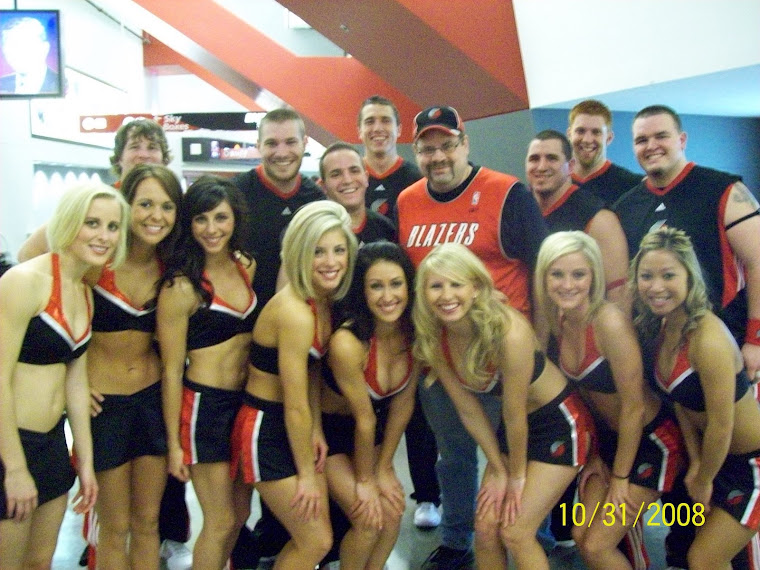They had some nice players and were built largely around Shooting Guard Jim Paxson. Game after game the Blazers tried to win via the fast break. But then something strange would happen. They would be matched up with the Showtime Lakers.
Each time, the Blazers changed their philosophy. They correctly recognized they could not run with the Lakers. As a result, every time they matched up with Showtime, they changed their philosophy.
Again and again they tried to turn the games into half-court slug-fests that would theoretically minimize the Laker advantage. Unsurprisingly, it never worked.
Since the Blazers were built around running, that is where their talents lay. They struggled to score in the half-court. Slowing the game down was intended to minimize the number of possessions which, in turn, would minimize the talent gap between the Blazers and Lakers.
The strategy had a serious flaw, however. The Lakers had a good half-court game where Magic could penetrate the lane at will, Kareem Abdul-Jabbar was a great post player, and slowing the game down really only meant more shots inside by Jabbar and less shots for the fleet wings of the Lakers in transition.
By contrast, the Blazers were giving up on the one thing they really did well. The talent gap between the Lakers and Blazers in the half court was larger than it was in the running game. The Blazers effectively defended themselves by taking their greatest strength out of their arsenal before the game even began.
I am sure it is just faulty memory, but it sure seemed like every match-up during those years was an easy Laker win, usually by blow-out.
Why bring up painful memories of losses to the team I despise most in the League?
The answer is simple. I was listening to the Blazer pre-game show. After interviewing Coach Nate McMillan, the radio personalities explained the Blazers game plan was to expend most of the shot clock, keep the score in the 80s, and win that type of game.
They scored 101 against the Hornets. They scored 96 against Detroit. Those are a couple pretty good defensive teams and Portland won by 15 and 11 points respectively. Now, admittedly, Boston is a better defensive team than either of those, but the point stands. Against the Pistons and Hornets Portland played their best game and saw where they stood. Against Boston they deliberately planned to play Boston with less than their best game plan.
By deliberately taking longer in the shot clock, they made the Celtics defend for less of the shot clock. This just in, Boston is pretty good on defense even without that help.
The result was an ugly 78 point output for Portland. I suppose it is a bright spot that they "only" gave up 93 to Boston...as long as you ignore the "mere" 15 point spread on the scoreboard.
Against the really good teams in the League, the best chance you have to beat them is to play your best game. When Portland set out to play less than their best game it made the game easier for Boston. Portland is going to get to the point where they don't have to play their best game to beat the top teams in the League, but they are not there yes and probably won't get there this year.
Meanwhile, Boston does not have to play their best game to beat most teams in the League. They are so good and work so well together that they can have half their team "off" on any given night and still pull out the win, particularly at home.
It seemed to me that the mistakes of the past were being repeated as Portland saw a team they were looking up at talent-wise and, instead of playing their best game, tried to play a strategy they were less skilled at in an attempt to beat a better team. It did not work. It will not work next time.
Portland's game has a lot to do with their depth. They go 10 deep in guys who can get them double figures on any given night. If LaMarcus Aldridge is struggling, they go to Channing Frye. If Nicolas Batum is not scoring, they can bring in Travis Outlaw. Rudy Fernandez is often a dynamic scorer who can fill it up from anywhere and in bunches. The beat goes on.
By playing fewer possessions and effectively shortening the game, the Blazer game plan largely canceled out the depth advantage. Boston is so good that when an opponent helps them that way, a blow-out is a veritable certainty.
The real irony is that Portland is good enough to compete with Boston assuming a few things fall in place:
1) They get over their psychological fear of Boston. Last year they said they felt "bullied" and intimidated. It showed this year, particularly in the 21-0 Boston run after Portland took a 36-35 lead.
2) They play their own game instead of trying to play styles they are not used to. That means maximizing the things they do well and minimizing they things they do poorly.
3) They play the tough, intense defense they are capable of instead of being intimidated and letting Boston do what it wants.
Overall, it is just one game in the loss column. However, it is one game that shows the difference between playoff-ready, potential Champions like Boston and teams that, at least at this point in the season, is not ready to face the top teams in the League in games of particular importance.


